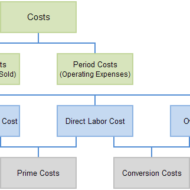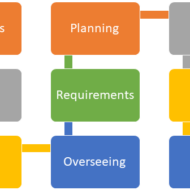Posted by Managementguru in Startups
on Apr 10th, 2015 | 0 comments

Let’s start the discussion traditionally with a Merriam-Webster definition, a startup means “the act or an instance of setting in operation or motion” or “a fledgling business enterprise.” What does the American Heritage Dictionary suggests is “a business or undertaking that has recently begun operation.” A startup is an organization formed to search for a repeatable and scalable business model. A startup is a business that has the capability to grow very rapidly, ultimately becoming a “real company” with an HR department, divisions, and processes. Steve Blank calls #startups a “temporary organization designed to discover a business model.” Startups, when they begin, have no procedure, no culture, and no recurring business model. All they know is that they have the potential to address a huge market if they can figure their business model out, and then scale quickly enough to stay ahead of the competition. As a founder you set off with a vision of a #product with a set of features and a series of assumptions about all the pieces of the business model. The inevitable questions to be answered are: Who are the customers/users? What’s the distribution channel? How do we price and position the product? How do we create end user demand? Who are our partners or Co-Founders? Where/how do we build the product? How do we finance the company, etc. When you go around and ask people however, startup really means a young company generally building something focused on technology. Every business goes through the same four phases: #Idea Startup Growth Maturity This maps rather well to Steve Blank’s 4 stages described in four steps to the epiphany: Customer discovery Customer validation Customer creation Company creation When is a startup no longer a startup? “A startup is no longer a startup when the product/market fit has absolutely been achieved, profitability or considerable revenue with a path to profitability has been obtained, and if any one person left the company would still survive and not get swayed by the departure.” Being a start-up is mostly about work environment and employee interactions. A start-up graduates to being no longer a start-up when interactions across hierarchies become formalised. For example, if you can no longer walk into the CEOs office to pitch your idea and (s)he does not know you by name, you are no longer working for a start-up. Also, if a company begins to have rules about employee progression (such as you need to spend 2 years before being promoted or moving into a new role etc) then it stops being a start-up. #Companies which have strict rules on which schools to hire from or firm ideas on how many years of experience should be required for which role, are no longer start-ups. I am not saying that start-ups do not have any criterion for hiring but these criterion, in a start-up, these would be based on things other than simply the pedigree or the number of years of experience. Start-ups hire people if they see passion and willingness to go the extra mile rather than for merely the right pedigree. Source: http://www.quora.com/Faguni-Jain Having made the above points – if a company crosses a certain threshold of revenues and/or profits, it should also declassify itself as a start-up – though it can continue to maintain the ‘start-up environment’ for its employees. Some Startup Mantras for Beginners would be: Be Careful with Cofounders Startups Take Over Your Life It’s an Emotional Roller-coaster It Can Be Fun Persistence Is the Key Think Long-Term Lots of Little Things to be considered It’s much more of a grind than glamorous Start with Something Minimal Engage Users Be Willing to Change Your Idea after User Interaction...

Posted by Managementguru in Accounting, Financial Management, Management Accounting, Principles of Management
on Mar 27th, 2014 | 0 comments

Costing is the technique and process of ascertaining cost whereas cost accounting is the application of costing and cost accounting principles, methods and techniques to the science, art and practice of cost control and ascertainment of profitability.

Posted by Managementguru in Business Management, CSR, Principles of Management
on Feb 26th, 2014 | 0 comments

According to Raymond Bauer, “Social responsibility is seriously considering the impact of the company’s actions on the society. It may also refer to the person’s obligation to evaluate in the decision making process, the effects of both his personal and institutional decisions and actions on the whole system, according to Keith Davis and Cobert Blomstorm. A) SOCIAL OBJECTIVES OF BUSINESS: 1. The focus should be on quality, safety, service and security which lead to customer satisfaction. Quality– Product superiority and durability Safety– Products should not cause any harm to the consumers Service– After sales service is the link that builds a long standing relationship between the company and customers Security– Sense of satisfaction and belief on the company’s brand 2. The business has social responsibility of giving adequate opportunities to the members of the society. If everybody aims at white collar job, how does a nation grow economically? Developing economies should promote and encourage entrepreneurs to create more “Job Opportunities.” This especially suits countries like India and China where the pressure of population is very high. 3. Mass production facilitates in factorizing the economy of scale and at the same time aids in providing with quality goods at reasonable prices to the consumers. We see big chain of retail shops like Cosco and Wal-Mart in the US have made this possible where consumers can avail discount for bulk purchase. In India, Big Bazaar is a forerunner in this kind of retail marketing which enhances the material well being of a community and raises the average standard of living of the people. 4. Another main objective of business would be to control the percentage of pollution in air, water and land. Discharge of effluent in a lake or a river by the industrial enterprise may result in water pollution and also affects the plant, animal life and fish and birds to a considerable extent. Stringent laws must be in place to avoid such incidences and protect the society. B) RESPONSIBILITY TO CONSUMERS There is only one valid definition of business purpose: “to create a customer”, the customer is the foundation of a business and keeps it in existence. The responsibilities of a business towards its customers would be: Increased productivity in order to make goods available for the consumers at the right time at right prices; this solely depends upon the increased efficiency of functioning of the businessConstantly strive to improve the quality of goodsR & D to improve product quality and to come out with better and new productsProper distribution structure to reach even the remotest of locationsRemove hoarding, black marketing, profiteering by middlemen or anti-social elementsProvide them with the required after sales serviceEnsure that the product supplied has no adverse effectSufficient information about the product has to be given to the consumers regarding the adverse effects and precautions to be taken while using the productNo misleading product information through improper advertisements or otherwiseTo provide an opportunity for being heard and to redress consumer grievances Consumer courts are becoming popular in India for handling consumer grievances swiftly and efficiently. It is but a sad thing that many people do not know that they can address issues relating to quality, quantity or service. The businesses should understand the consumer needs and take necessary measures to satisfy those needs. C) REPONSIBILITY TO THE COMMUNITY To prevent environmental pollution and to preserve the ecobalanceAssisting in the overall development of a localityUse alternate energy resourcesContributing to research and developmentRehabilitate the population displaced by the operation of the businessDevelopment of economically backward areasPromotion of small scale industriesContributing to the national effort It is gratifying to see that many leading corporate icons of...

Posted by Managementguru in Operations Management, Project Management
on Feb 24th, 2014 | 0 comments

Significance of Operations Management: Business firms need to formulate brilliant operations strategies in order to survive in the market for long. Focus on finance and marketing alone is not sufficient to compete in the global market. The emergence of innovative products and processes from leading companies in different parts of the world is a clear-cut evidence to prove the significance of operations function. Operations management is gaining importance, thanks to public awareness on quality and its applicability in service operations too. Advent of Industrial Revolution: Until the advent of machinery, each and every nation was dependent on agriculture, which was the prime economic activity. After the industrial revolution of the eighteenth century, mechanization in a large scale converted agricultural economy to an industrial economy. Slowly scientific principles were introduced into production activities to make it more systematic and thus “Production Management” evolved. Now service operations have also gained momentum and since the concepts and techniques of production management are applicable to service operations too, it is rightly called as “Operations Management.” Operations management functions at three different levels. Strategic levelTactical levelOperational level Strategic level: At the strategic level, the operations manager must have a long term vision, as to shape up the company’s success in the light of strategic decisions taken, with the approval of the top management. His area of concern would be, New product developmentNew process developmentProduct re-designProcess re-designProcess layoutProduct layoutFacility locationAggregate capacity planningPlanning co-ordination with finance and marketing departments Tactical level: At the tactical level, the operations manager is concerned about the planning and scheduling operations of the desired output. His area of concern would be: Designing a suitable inventory systemPlan for the work force and train them effectivelyQuality control systemMaintenance andReliability assurance system. Operational level: At the operational level, the job of the operations manager is to accomplish the “set targets”, by performing various coordinating and controlling functions. His area of concern would be: Ordering materials at the right timeScheduling productionScheduling workers as per production requirementControlling quality of goods and services producedFollow up of various schedules for proper implementationMaintaining and updating equipment and system reliabilityOn the job skill development of workers, etc. These functions are by no means exhaustive, but only indicative. The process of planning and control operations is not done in water tight compartments, but are interactive and integrative feeding on one another and also aligned in line with the overall corporate objectives. The strategies are evolved for the purpose of efficient utilization of the available resources as well as to predict the changes in the external business environment that calls for suitable action to limit their impact on the goals of the organization, in terms of cost, quality and...








